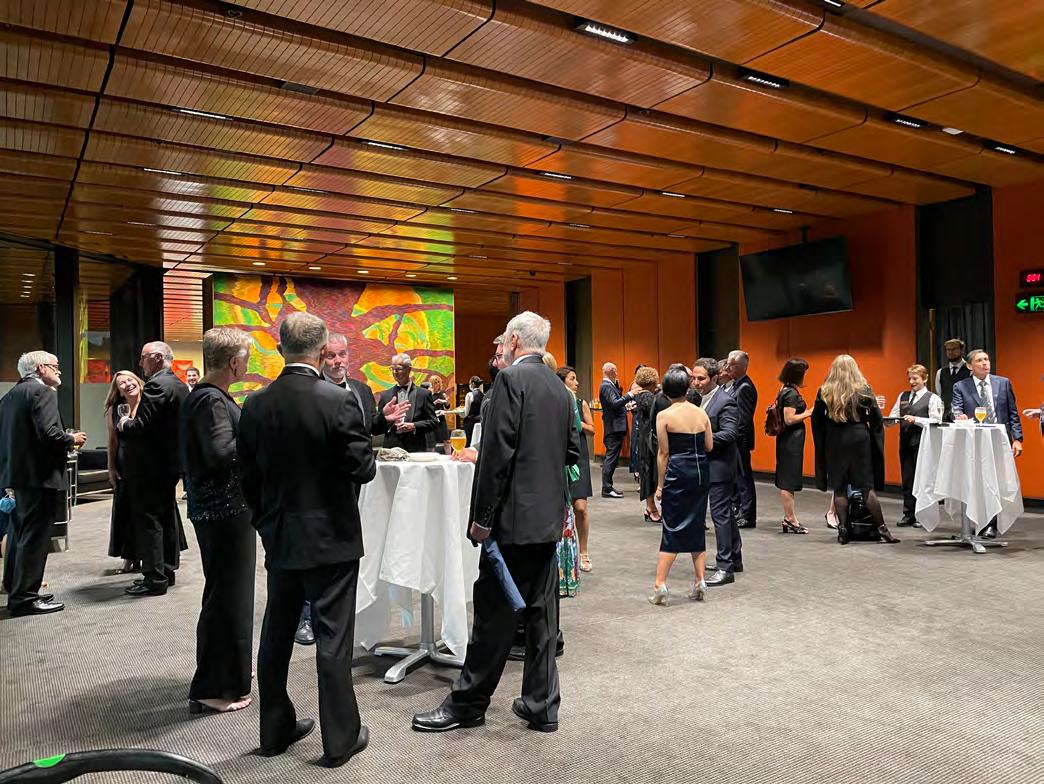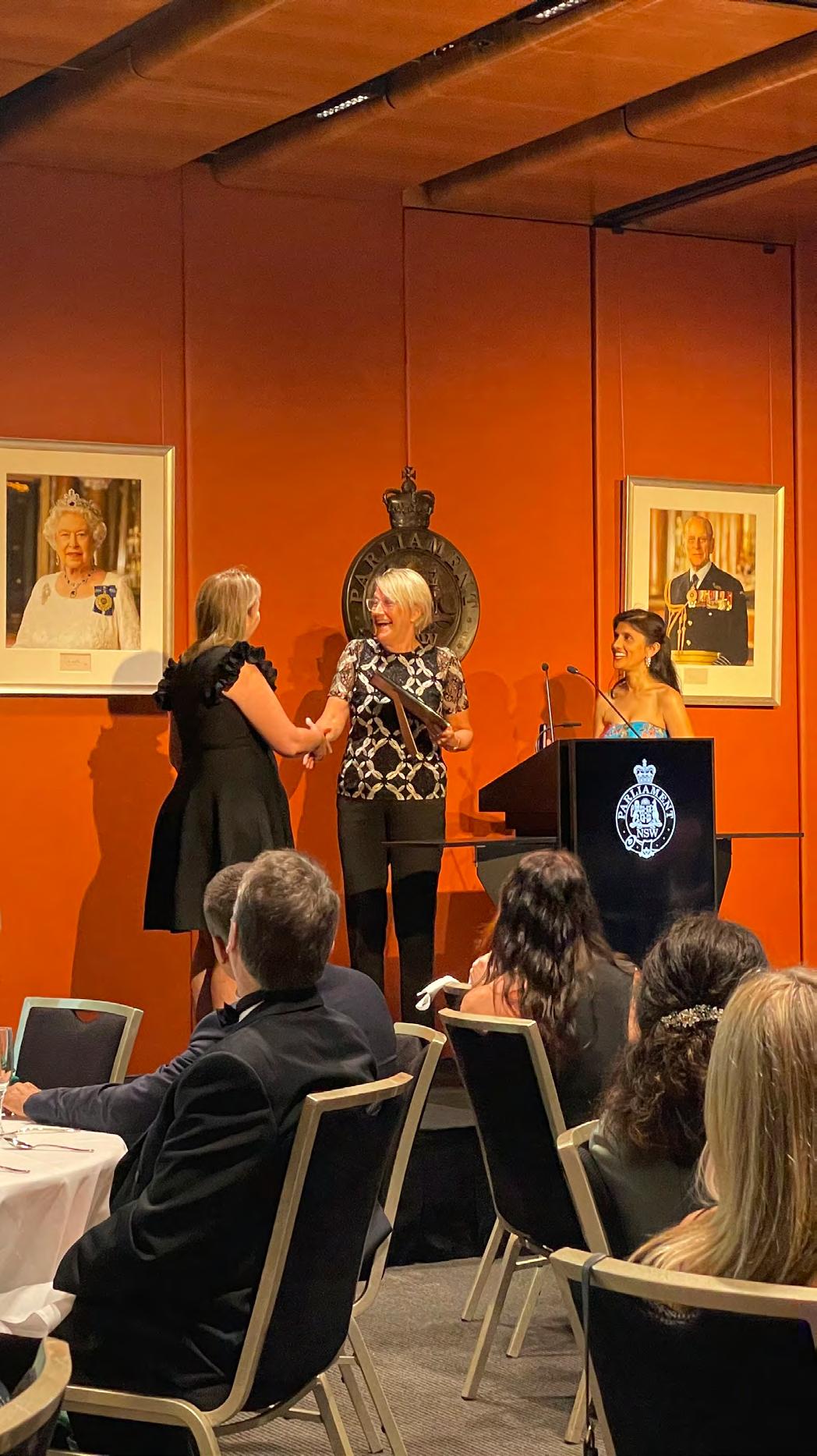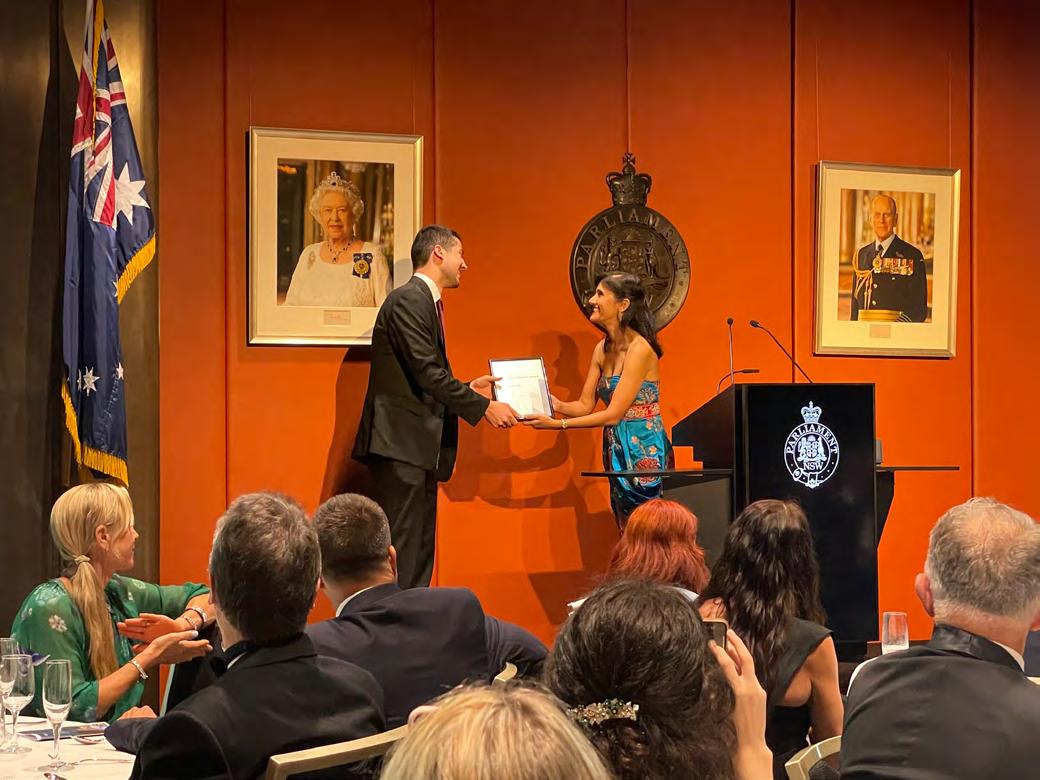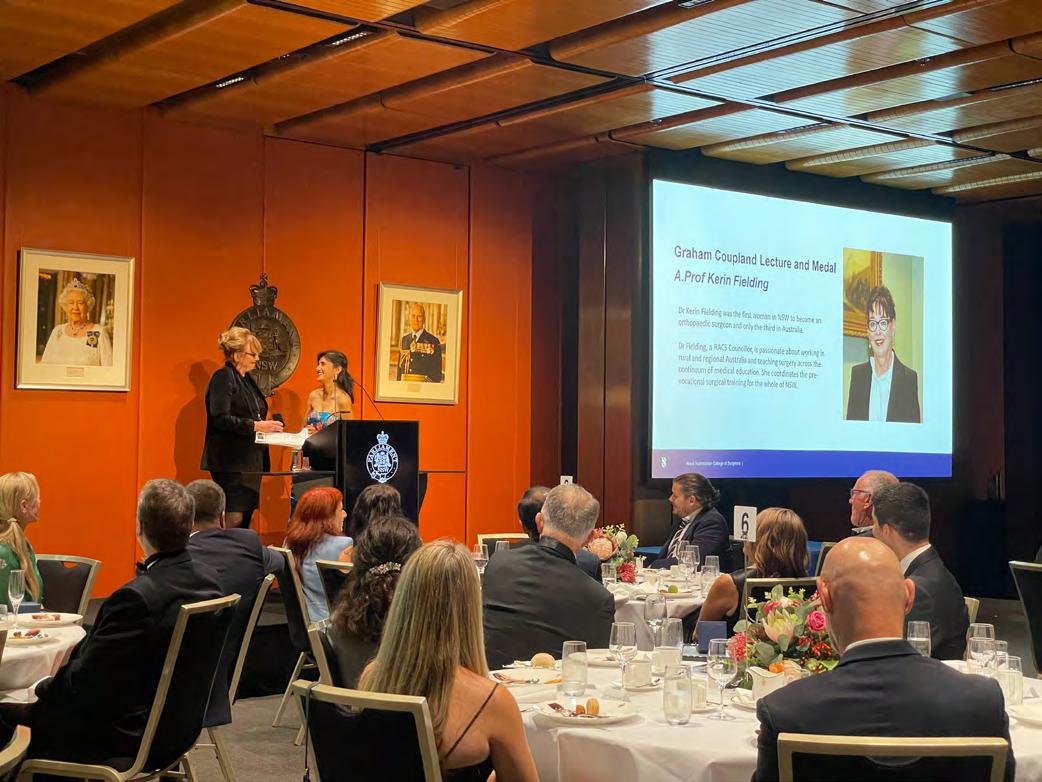
3 minute read
New South Wales surgeons scrub up for Surgeons’ Month
The annual RACS New South Wales Surgeons’ Month was held successfully despite a later than usual start date and the many challenges brought on by the ongoing pandemic. The event brings together New South Wales Fellows, Trainees, Specialist International Medical Graduates, prevocational doctors, medical students, and other College stakeholders to collaborate about surgical education, research and best practice. The popular event is typically scheduled for November, but a decision was made to postpone the 2021 event until February 2022 due to uncertainties surrounding the COVID-19 outbreak across the state. Despite the many challenges faced, RACS New South Wales Chair Associate Professor Payal Mukherjee, said that holding the event had been worthwhile and she was delighted by the support it received.
“This Surgeons’ Month has been particularly difficult to plan, but it has been so well supported by the local Fellowship. Many events sold out very early, which demonstrated the value of the social, cultural and educational events that comprise Surgeons’ Month.” The RACS New South Wales Surgeons’ Month concluded with the pinnacle event of the program—NSW Surgeons’ Evening. The highlights of the Surgeons’ Evening included the Graham Coupland Lecture, which was presented by Associate Professor Kerin Fielding. Associate Professor Fielding, a RACS Councillor and Wagga-based surgeon, presented an enlightening lecture on The Great Divide: Rural Generalist and Urban Specialist. It also included the launch of Beyond Science, which is a state-wide surgical innovators program, an initiative supported by the Passe & Williams Foundation. Developed by Associate Professor Mukherjee and Professor Gordon Wallace initially for Ear, Nose and Throat (ENT) Surgery, Beyond Science brings together surgeons and scientists from many institutions across New South Wales to help ENT medical technology development, translation and commercialisation, accelerating research translation from bench to bedside. “Despite a rich history of biomedical innovation in Australia, there are limited training opportunities for surgeons to develop these skills. Within New South Wales, there are no formal surgeon-scientist training pathways in Otolaryngology, Head and Neck Surgery. Our limited understanding of technology commercialisation has impeded our ability to translate fundamental scientific breakthroughs to the bedside,” Associate Professor Mukherjee says. “Therefore, as research becomes more and more technology focused, developing these industry-ready skills will be essential so that Australian otolaryngology will continue to deliver innovations to the community. Beyond Science is a clinician-led and clinicianrun training program, which aims to incrementally develop a comprehensive Australian-first medical technology translation program for Otolaryngology, Head and Neck Surgery. “What we are hoping is that innovation appetite is targeted towards health service needs. We have a real disparity in health care access in rural and remote areas as well as in Indigenous healthcare. “ENT has a great future and the foundation will have a key role in ensuring that it evolves.” Another highlight of the evening was the presentation of the Inaugural RACS New South Wales Women in Leadership Award. This award is presented to a female New South Wales Fellow who exemplifies the values of RACS New South Wales in promoting and achieving equality. Congratulations to Associate Professor Amanda Dawson who was presented with the award by New South Wales Health Secretary Elizabeth Koff. Associate Professor Dawson is particularly recognised for her dedicated and sustained commitment to training and academic surgery leadership. This was evidenced by her innovative Traineeled research and Near Peer Teaching collaboratives, among her many other leadership roles.
Advertisement














